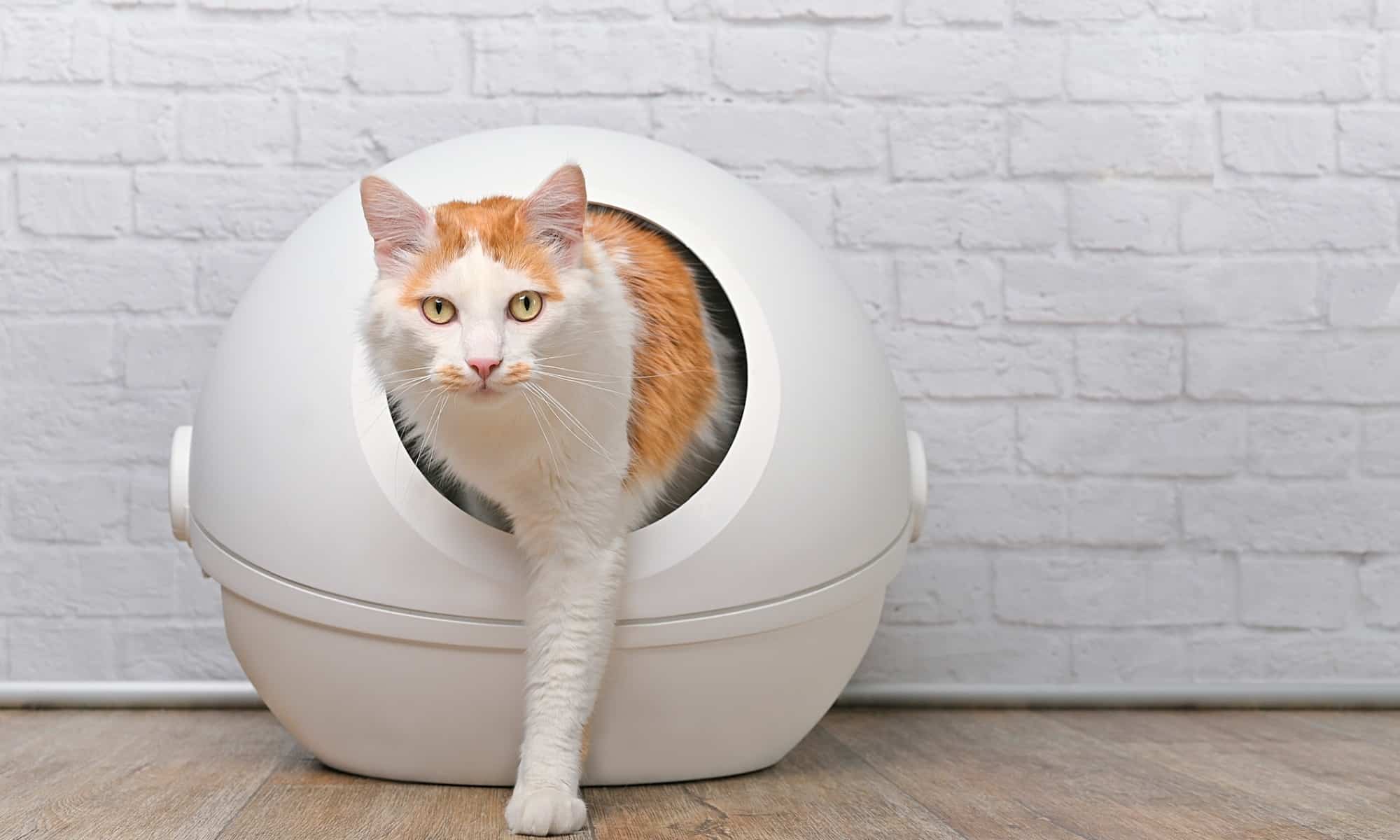No doubt about it, cleaning out a kitty litter box is one of the least enjoyable parts of being a cat owner. The smell, the dust, vacuuming up scattered litter—not anyone’s idea of a good time. But besides the inconvenience, it’s a job that could actually make you seriously ill. We’re about to introduce you to several serious diseases and parasites that can result from exposure to cat litter, as well as other health problems indirectly caused by exposure to fine airborne particles.
1. Campylobacteriosis
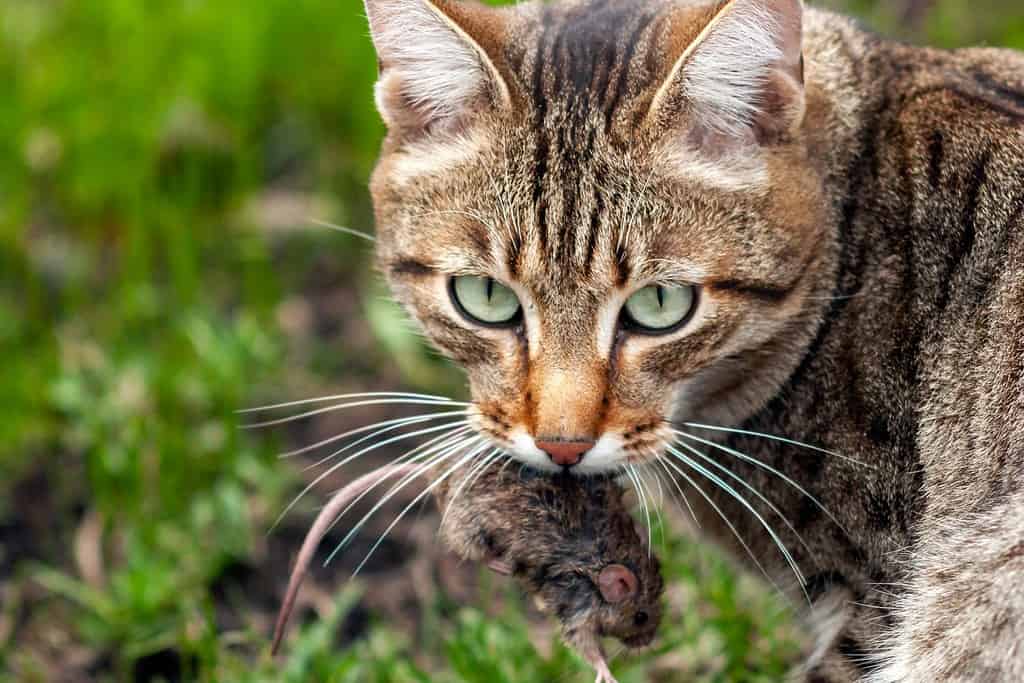
Hunting cats can get infected with campylobacteriosis from their prey.
©Vladimir Ya/Shutterstock.com
Campylobacteriosis is a bacterial infection that causes bloody diarrhea, stomach cramps, nausea, and vomiting. Cats can get it from eating raw meat, including scraps you’ve fed it, or mice or other small creatures it’s caught outdoors. The bacteria get into its feces, which you can unintentionally ingest by contact with it on your skin and unintentionally touching your mouth.
2. Cat Scratch Disease
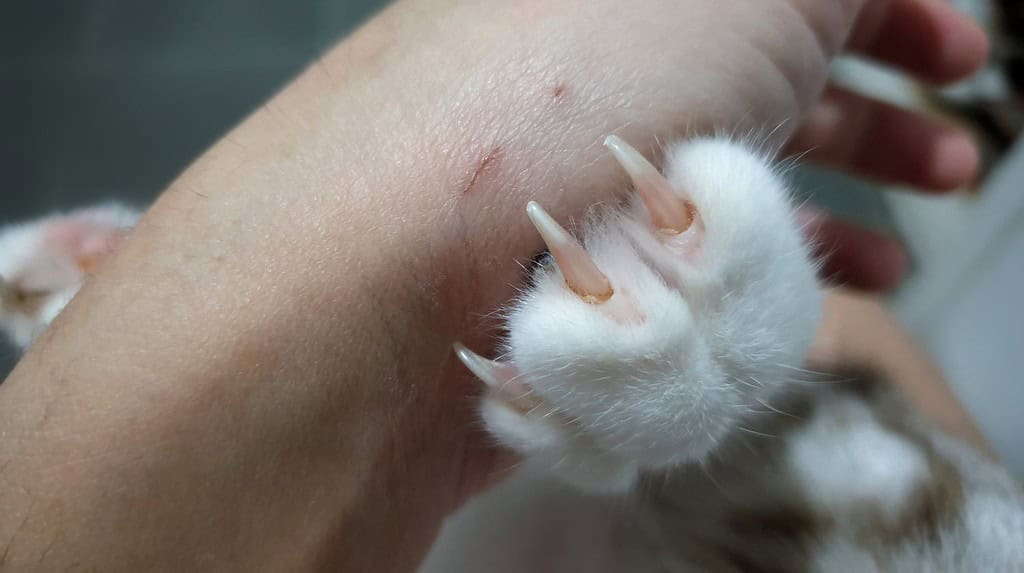
As the name indicates, you can get cat scratch disease from a cat scratch or bite, but also by being bitten by an infected flea.
©RJ22/Shutterstock.com
The scientific name of cat scratch disease is Bartonella henselae. In people, it can cause bumps, cysts, or a rash, swollen lymph nodes, fever, fatigue, and muscle or joint aches. Cats carry the bacteria in their saliva and can pass it to people by biting or scratching them. So how are you in danger from it when you change cat litter? Cats get the disease from infected fleas. Cats can shed adult fleas in their litterbox that will survive for several days and flea eggs that can hatch there in 1-10 days. Get bitten by an infected flea, and you could have cat-scratch fever.
3. Giardiasis
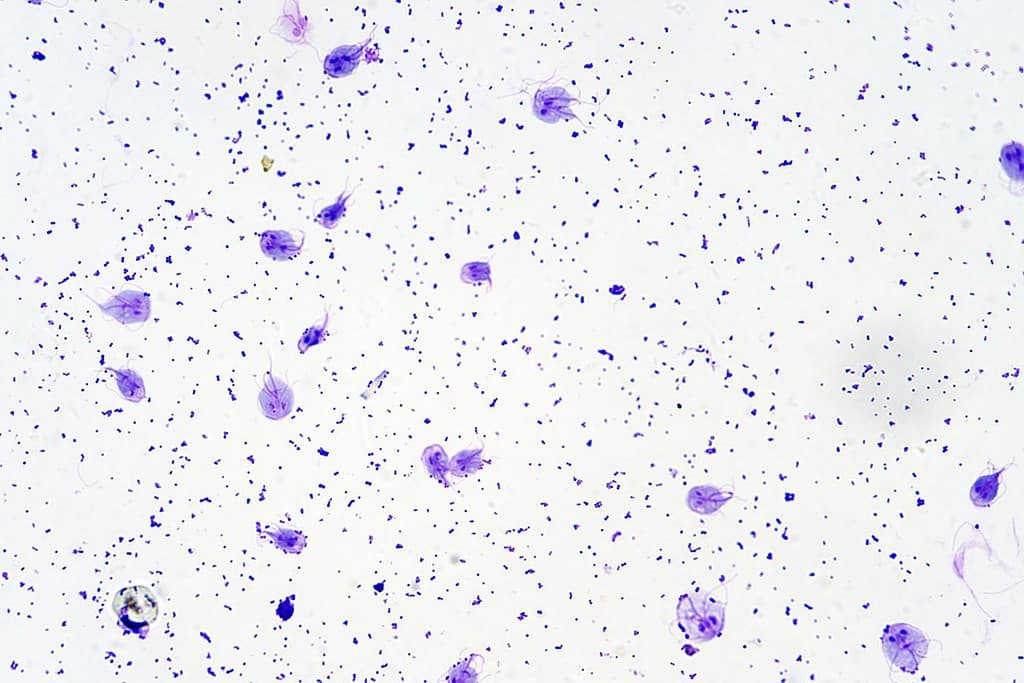
Giardia parasites as seen under the microscope.
©D. Kucharski K. Kucharska/Shutterstock.com
Cats can contract giardiasis by drinking contaminated water. If your cat has it, you’ll know because it will have frothy, greasy stools or diarrhea. Its feces will have giardiasis cysts that can get on your hands. If you don’t wash properly, it’s possible to get infected.
4. Roundworms
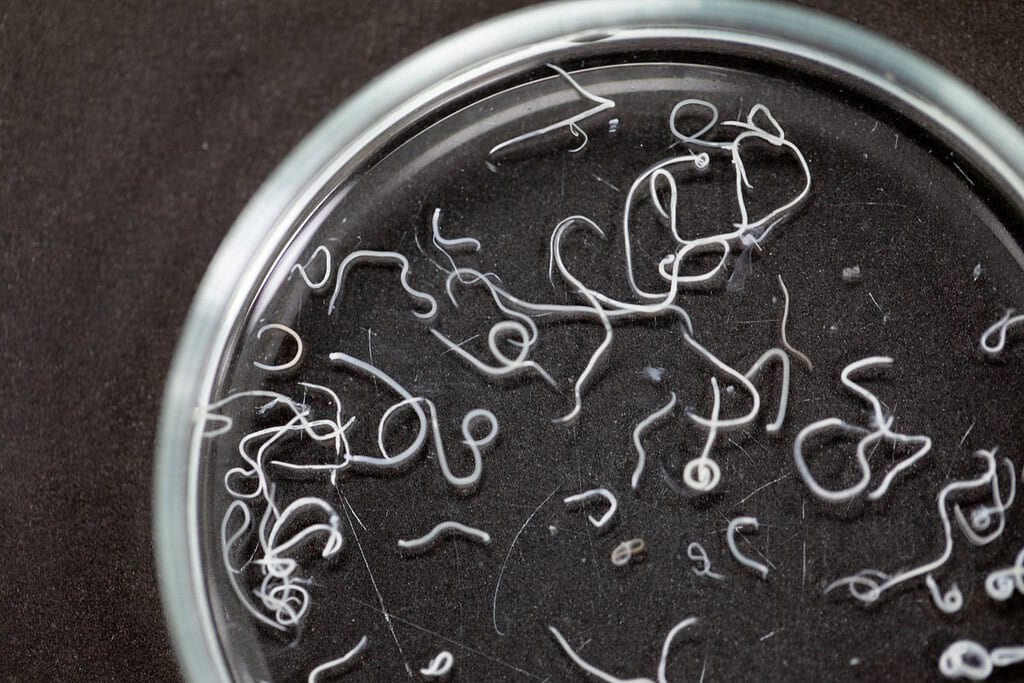
Roundworms can infect dogs, cats, and people.
©Rattiya Thongdumhyu/Shutterstock.com
Cats can get infected with roundworms by eating animals that are infected or by sniffing around contaminated soil or plants. The eggs can survive outside a host for months. If a human gets exposed to infected cat feces, they can have respiratory problems, abdominal cramps, organ damage, and can even go blind if the larvae migrate to their eyes.
5. Toxoplasmosis

Pregnant women should avoid exposure to cat feces because toxoplasmosis can create birth defects in the fetus.
©Veronika Zelenina/Shutterstock.com
Toxoplasmosis is a bacterial infection animals and people can contract by eating raw or undercooked meat or by exposure to the feces of animals that do. It can cause flu-like symptoms, respiratory issues, blurry vision, or seizures. It can also cause birth defects. Pregnant women and immunocompromised people should avoid handling cat litter or take very careful precautions. Infected cats usually contract the disease from eating birds or rodents. For two weeks after infection, cats shed cysts containing the bacteria in their stool. It takes 1-5 days for excreted cysts to become infectious. Changing your cat’s litter daily can prevent you from contracting it.
Additional Health Concerns About Cat Litter
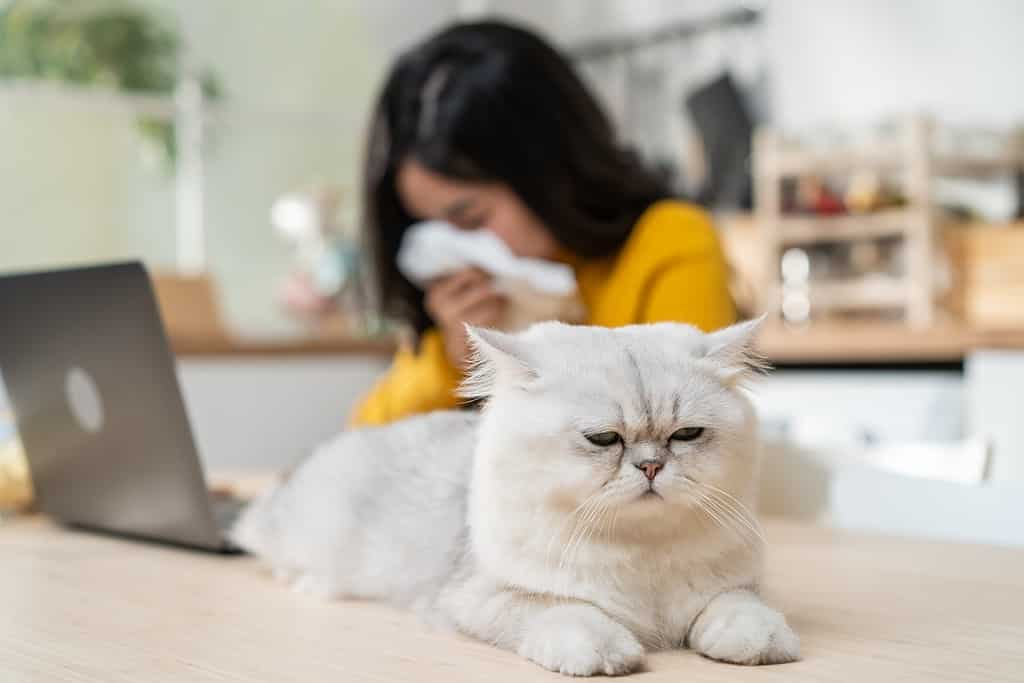
Even people who are not allergic to cats might be sensitive to dust and odors from cat litter.
©Hananeko_Studio/Shutterstock.com
Not only can cat litter lead to serious infectious diseases, but it can also trigger allergic reactions and respiratory problems in people with asthma or who are sensitive to things like dust, the smell of ammonia, or fragrances used in scented litter. Untreated, allergies can compromise a person’s immune system and make them more vulnerable to complications like bacterial or fungal infections.
Staying Safe From Cat Litter Hazards
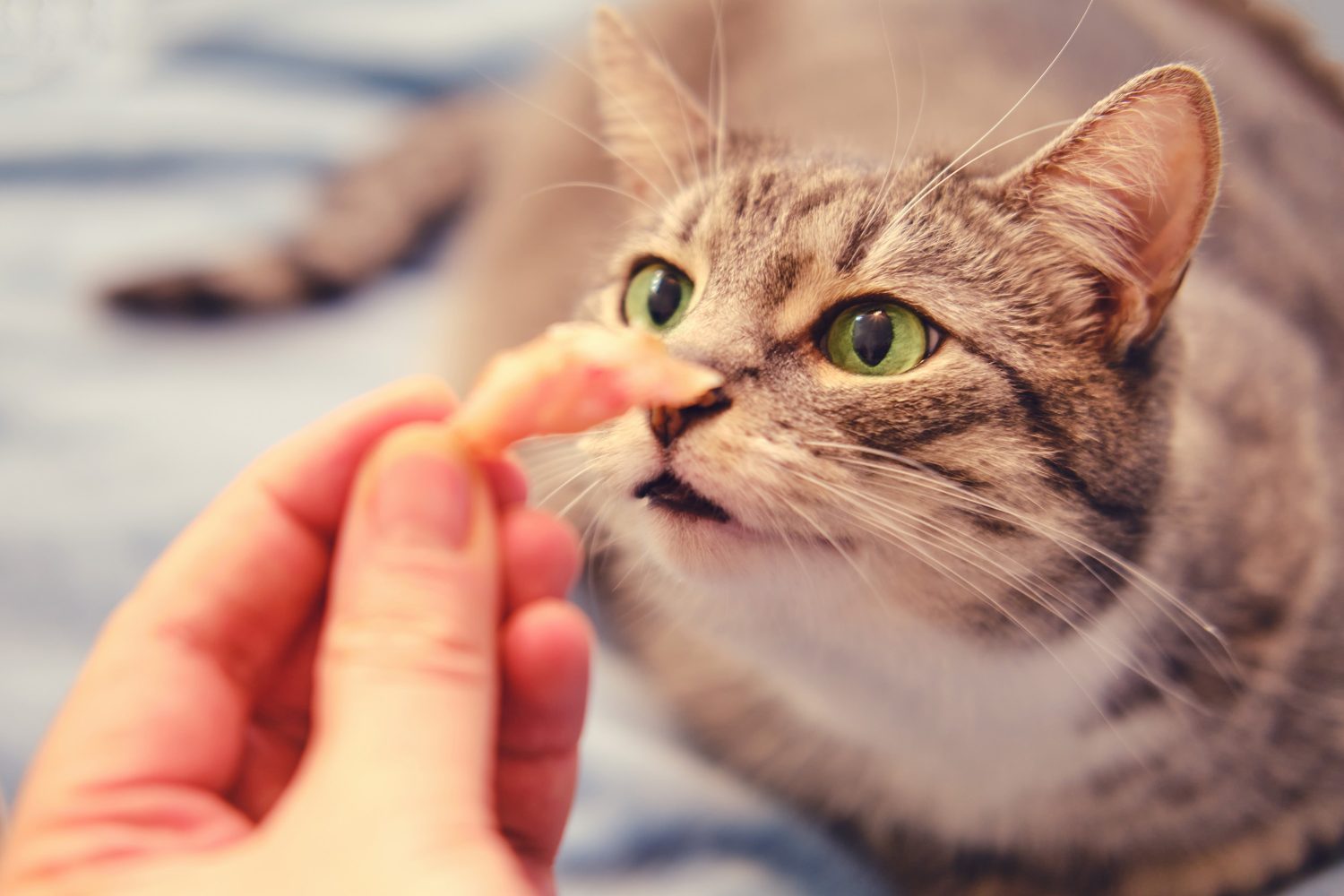
To keep your household healthy, avoid feeding raw meat scraps to your kitty.
©Zhuravlev Andrey/Shutterstock.com
As you’ve noticed, cats contract some diseases from raw meat. Keeping your cat indoors rather than allowing it to hunt and making sure not to feed it uncooked meat scraps will go a long way to keeping it and you healthy. You should also make sure to vaccinate your cat and treat it regularly with a flea preventative. Use an unscented clumping cat litter and scoop the box every day, changing the litter and sanitizing the box with soapy water once a week. Wear disposable gloves to avoid getting any fecal particles on your hands, and wear a face mask if you are pregnant, immunocompromised, or sensitive to dust and scents. And, of course, wash your hands thoroughly with soap and water when you’re done.
Fortunately, it is relatively rare for people to get seriously ill from cat litter. But with some common-sense precautions, you won’t become one of those who do.
Thank you for reading! Have some feedback for us? Contact the AZ Animals editorial team.

